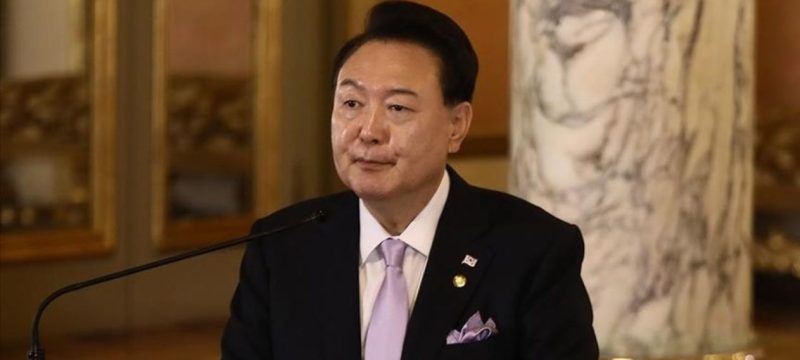South Korean President Yoon Suk Yeol was officially removed from office on Friday after the Constitutional Court upheld his impeachment, following his controversial martial law declaration last year that triggered the nation’s most severe political crisis in decades.
The decision concludes months of political unrest that have hampered the government’s ability to focus on key issues, including adjusting to the leadership shift in the United States under President Donald Trump, amidst a period of economic slowdown in Asia’s fourth-largest economy.
Read more: First in History: South Korea’s President Yoon Arrested Over Martial Law Bid
As per South Korea’s constitution, a new presidential election must be conducted within 60 days. Until then, Prime Minister Han Duck-soo will serve as the interim president.
Professor Leif-Eric Easley of Ewha University in Seoul commented that the unanimous court decision removes a significant element of instability. He emphasized the urgency for the incoming administration to tackle challenges such as military threats from North Korea, diplomatic tensions with China, and economic issues like U.S. trade tariffs.
Acting Chief Justice Moon Hyung-bae stated that President Yoon overstepped his constitutional authority with the December 3 martial law order. He described the move as a direct threat to democratic values, asserting that it represented a severe breach of public trust and threw the nation into chaos across multiple sectors, including foreign relations, the economy, and public life.
Crowds gathered in support of Yoon’s removal broke into celebration as the ruling was announced, shouting “We won!” and waving flags. Meanwhile, Yoon’s supporters reacted with outrage near his residence, where tensions escalated and a protester was arrested for vandalizing a police bus, according to Yonhap News.
Despite the political upheaval, financial markets remained relatively steady. The Korean won traded about 1% higher at 1,436.6 against the U.S. dollar, and the KOSPI index dipped 0.7%, reflecting that the court’s decision was largely anticipated.
The court dismissed Yoon’s defense that martial law was a necessary warning against the main opposition party’s alleged abuse of power, arguing that there were lawful and constitutional means to address such issues. Justice Moon further highlighted that the martial law order lacked both legal and procedural validity, and using military force to interfere with parliamentary operations was a significant breach of constitutional duties.
Following the verdict, Kwon Young-se, interim leader of Yoon’s People Power Party, issued a public apology and accepted the court’s decision. He pledged cooperation with the acting president to help restore political stability.
In response, Acting President Han Duck-soo vowed to ensure a smooth and peaceful transition through the upcoming election. Meanwhile, Finance Minister Choi Sang-mok planned an emergency meeting with the central bank governor and top financial regulators to monitor the economic situation.
Yoon, now 64, still faces a criminal trial on insurrection charges related to the martial law incident. He had previously made history as the first sitting South Korean president to be arrested, though he was released in March after a court revoked his arrest warrant.
The political crisis erupted when Yoon issued a surprise martial law order, claiming it was necessary to eliminate so-called “anti-state” elements and counter the opposition Democratic Party’s misuse of its legislative dominance. The decree was withdrawn just six hours later after resistance from parliamentary staff and lawmakers, who physically blocked military forces from entering the National Assembly. Although Yoon later claimed he had no intention of enforcing full military rule, the damage was already done, and his reassurances failed to calm public outrage.









